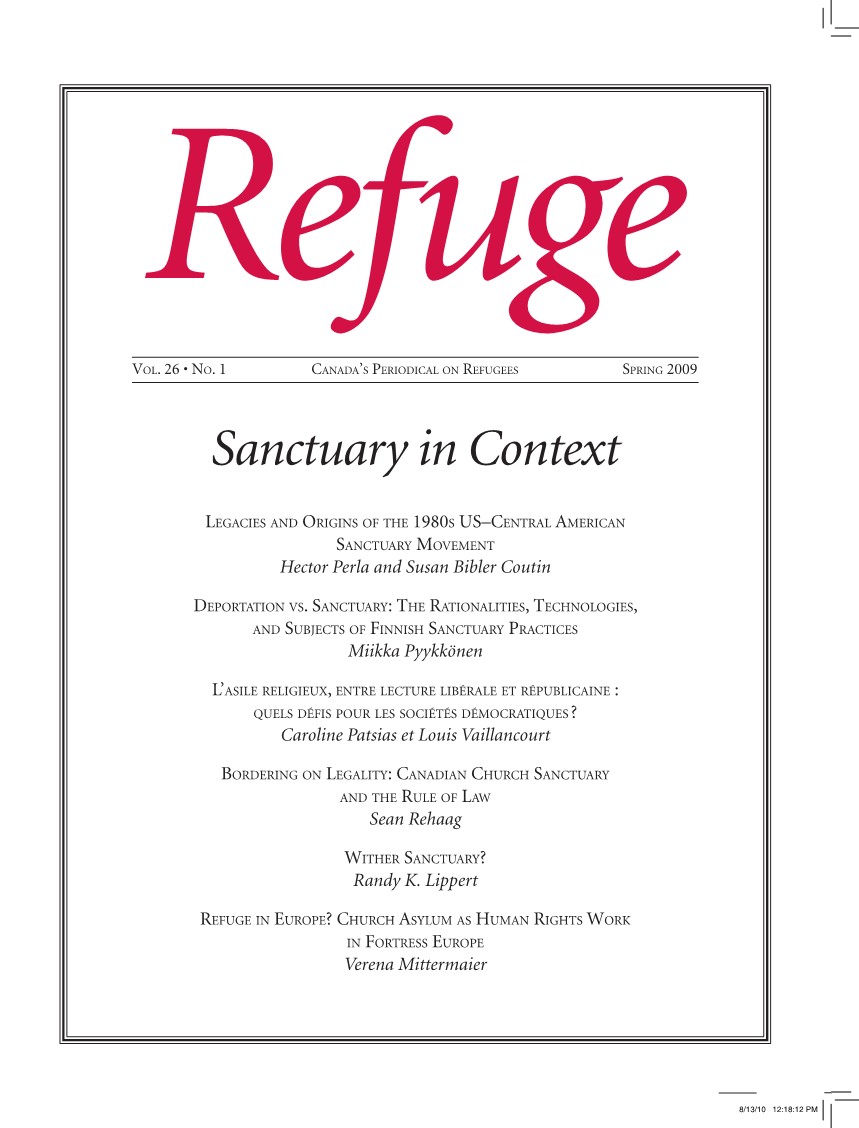Legacies and Origins of the 1980s US-Central American Sanctuary Movement
DOI:
https://doi.org/10.25071/1920-7336.30602Keywords:
United States, El Salvador, Central America, Central American migrants, sanctuary, transnational framework, solidarityAbstract
This article re-examines the US–Central American sanctuary movement of the 1980s. Our re-examination is motivated by two factors. First, with the passage of time it is possible to discern the movement’s origins in ways that could not be fully articulated while it was ongoing. We are able to show how certain relationships between the movement’s North and Central American activists were celebrated, while others were obscured due to fear for Salvadoran immigrant activists’ safety and concern about inadvertently undermining the movement’s legitimacy. Specifically, we draw attention to the movement’s transnational nature, noting that what made it so powerful was its origin as part of a broader effort by Salvadoran revolutionaries to mobilize North American society to oppose US support for the Salvadoran government. Ironically, to achieve this objective Salvadoran immigrant activists had to stay quiet, become invisible, and abstain from taking certain leadership roles, while embracing identities that may have implied weakness or passivity, such as “refugee” or “victim.” Second, the US–Central American sanctuary movement provides powerful insight into future understandings of sanctuary as a concept and practice. The movement’s legacies extend beyond participants’ stated goals, while the movement’s transnational political and organizational focus differentiates it from current sanctuary practices. Thus, re-examining its origins and legacies suggests that apparent similarities in the form of sanctuary incidents may hide underlying differences and that current sanctuary practices may also eventually have unanticipated consequences.
Metrics
Downloads
Published
Versions
- 2010-10-09 (2)
- 2010-10-08 (1)
How to Cite
Issue
Section
License
Copyright (c) 2010 Hector Perla, Susan Bibler Coutin

This work is licensed under a Creative Commons Attribution-NonCommercial 4.0 International License.
Refuge authors retain the copyright over their work, and license it to the general public under the Creative Commons Attribution-Non Commercial License International (CC BY-NC 4.0). This license allows for non-commercial use, reproduction and adaption of the material in any medium or format, with proper attribution. For general information on Creative Commons licences, visit the Creative Commons site. For the CC BY-NC 4.0 license, review the human readable summary.







